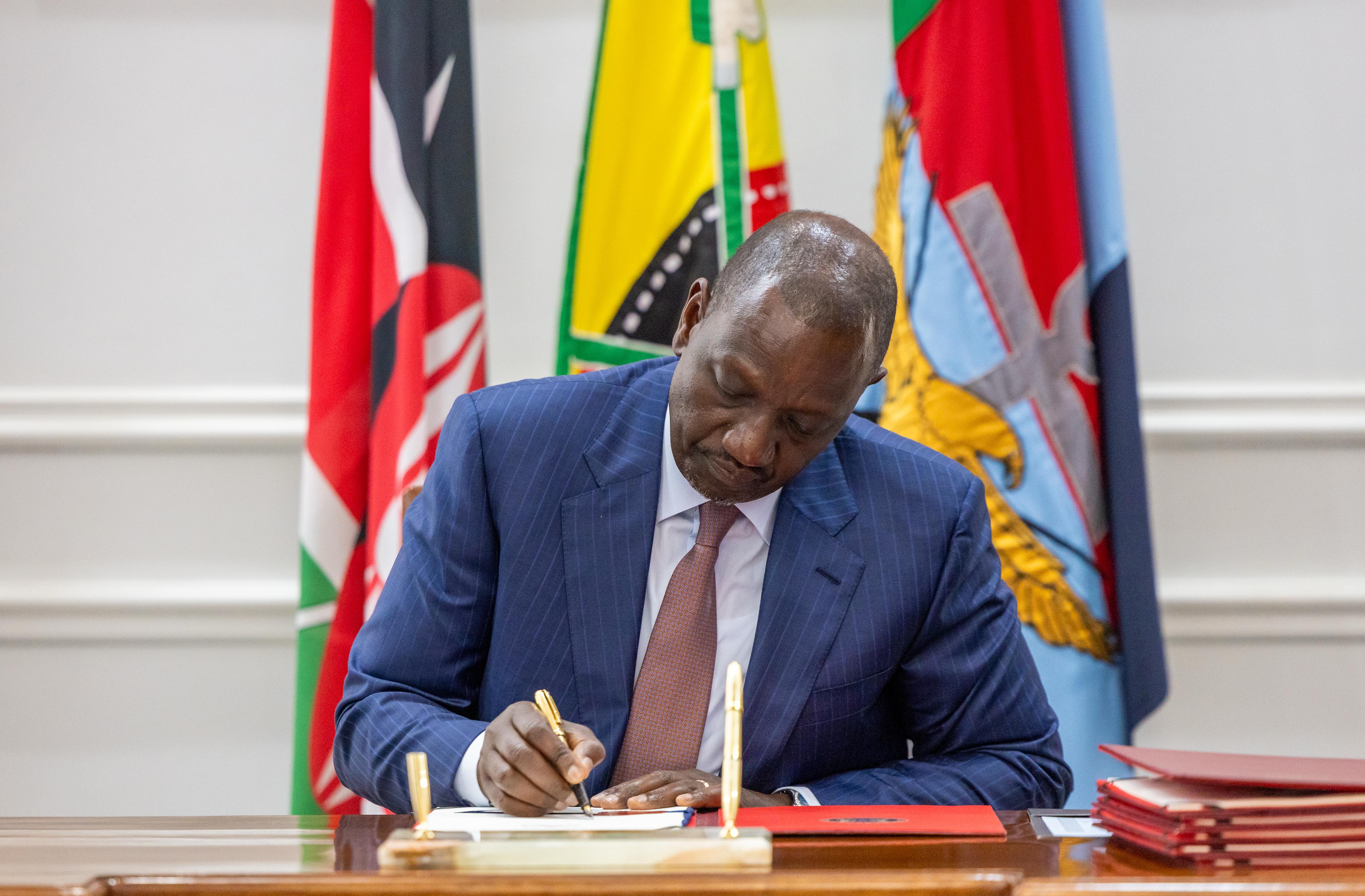
President William Ruto on Wednesday signed the Social
Protection, 2025, and the Conflict of Interest Bill, 2025, into laws at the State House.
The assent of the bills into laws usher in a new era of
accountability and transparency in public service, strengthening the country’s
legal framework in the fight against corruption and ethical breaches.
The signing also promises more equitable, efficient and
dignified support for millions of Kenyans facing economic or social hardship.
The Bills were sponsored by the Leader of Majority Party
Kimani Ichung'wah.
The Social Protection Bill was considered and passed by the
National Assembly on April 30, 2025 and was subsequently passed by the Senate
without amendments on July 23, 2025.
The new law has now replaced the Social Assistance Act and
established a National Board for Social Protection to coordinate
non-contributory benefits such as cash transfers, social care and feeding
programs.
It adopts a life-cycle approach, supporting individuals
through various stages of vulnerability such as orphans, the elderly, persons
with disabilities and those in extreme poverty.
County governments will play a role in implementing national
policies and developing local social protection strategies.
A central digital registry will manage applications, monitor
services and track vulnerable households, especially during shocks or
emergencies.
Eligibility is extended to Kenyan citizens and non-citizens
in emergency situations, with clear appeal mechanisms provided. A Social
Protection Fund will be created to finance the programs.
On the other hand, the Conflict of Interest law, 2025,
consolidates all laws related to conflict of interest, repealing the Public
Officer Ethics Act and introducing sweeping reforms to curb unethical conduct
in public service.
The Bill’s passage follows a complex legislative journey
involving multiple rounds of consideration and mediation between the National
Assembly and the Senate.
Initially passed by the National Assembly in November 2023,
the Bill underwent amendments in the Senate before being referred to a
mediation committee.
A final mediated version was approved by both Houses, by the
National Assembly in December 2024, and by the Senate in April 2025.
Following a presidential referral with reservations, both
Houses reconsidered and passed the Bill with amendments accommodating the
President’s concerns, culminating in final passage in June (National Assembly)
and July 2025 (Senate).
The CoI now places the Ethics and Anti-Corruption Commission
(EACC) at the centre of enforcing compliance with Chapter Six of the
Constitution, particularly regarding leadership and integrity.
The legislation bars public officers from granting
preferential treatment in official duties, being influenced by offers of future
employment, entering contracts with entities they serve, acquiring interests in
such entities and holding secondary jobs that pose a conflict with official
duties.
The law also introduces clear protocols for recusal, income
and asset declarations, and complaint handling, all under the EACC’s
supervision.
Significantly, the law enhances wealth declaration
requirements. State and public officers will be required to file biennial
declarations of their income, assets, and liabilities, including those of their
spouses and dependents.
The scope now covers senior officials such as the Chief
Justice, Cabinet members, and Members of County Assemblies, who were previously
excluded under the repealed Public Officer Ethics Act.
The law also introduces a 90-day deadline for conflict of
interest investigations, prohibits concurrent probes by different authorities,
and provides a clear structure for citizens to lodge complaints.










![[PHOTOS] Elgeyo Marakwet landslide victims arrive in Eldoret for care](/_next/image?url=https%3A%2F%2Fcdn.radioafrica.digital%2Fimage%2F2025%2F11%2F425460d9-7ff1-4975-8a1f-cd0aaefb7812.jpg&w=3840&q=100)

